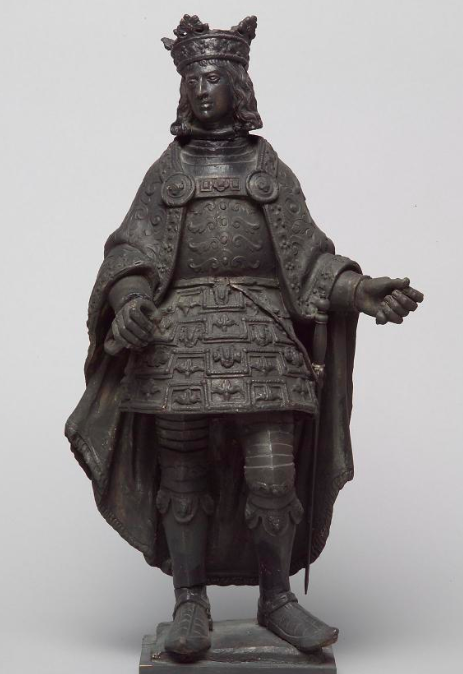Díky za článek. 
13.01.1330 - Frederick I. Sličný died after a long illness
Categories: Personalities , Calendar
A significant part of his reign was influenced by his disputes with Louis Bavor over the throne of the Holy Roman Empire. For the last three years of his life, he was very ill and made no sign of himself. Frederick I of Habsburg, who is also known as the Magnificent, died on 13 January 1330.
His brother was Rudolf I of Habsburg, who was the ninth king of Bohemia. He reigned but only briefly from 1306 to 1307. His brother gained dominion over the Habsburg lands. After Rudolf died, the Habsburgs tried to maintain their administration of the Bohemian lands. But these efforts ended in 1308 with the murder of Frederick's father, Albrecht I. It was not so certain whether the Habsburgs would retain their lands at all. Eventually, however, Frederick managed to gain the support of James of Aragon by marrying Isabella of Aragon, eleven years his junior. She subsequently adopted the German name of Elisabeth.
The struggle for power, however, was far from over for Frederick. After the death of Henry of Luxembourg, the throne of Rome became vacant. But like Frederick, his cousin Louis of Bavaria wanted it. Both were elected Roman kings - Frederick at Sachsenhausen, but the election was subsequently declared invalid, and Ludwig the next day by the other part of the Electors. "The experienced Archbishop Peter of Aspelt had the main say, and he sided with Ludwig," says Richard Händl in his book Grey Eminences in Czech History.
The dispute over the throne between Louis and Frederick escalated to armed conflict. However, the decisive battle was delayed by the weather, as it rained constantly between 1315 and 1316. This made a regular battle impossible. "This was also partly due to indecision and Ludwig Bavor's poorly read tactics," writes Lenka Bobková in her book Jan Lucemburský.
Another battle was about to take place in 1319, but again nothing happened. Ludwig withdrew with his troops to Munich at the last minute and his ally Henry XIV. The Austrian soldiers were left in charge of the towns and prisons as far as Reims. Louis was so shaken by this fiasco that he even considered abdicating. All in all, the two monarchs were in disarray. In the south of the empire, the Habsburgs had their Swabian possessions and many supporters to fall back on, and even in the Rhineland Louis could not rely on all the local towns. "The behaviour of the supporters of the two kings, however, was still fluctuating," Bobková notes in her publication.
The dual rule lasted until 1322, when Frederick fell into Ludwig's captivity during the Battle of Mühldorf and was taken to Trausnitz Castle. This was the ancestral seat of the Wittelsbach family, which from 1255 to 1503 was the seat of the dukes of Lower Bavaria and then the court estate of the Bavarian crown prince. As a result of his long imprisonment, Frederick fell seriously ill and died on 10 January 1330. His long-time rival Ludwig of Bavaria died in 1347 while hunting a bear.


Source: www.bavorsko.cz, Lenka Bobková: Jan Lucemburský, Richard Händl: Grey Eminences in Czech History, https://oldthing.de/
The article is included in categories:







